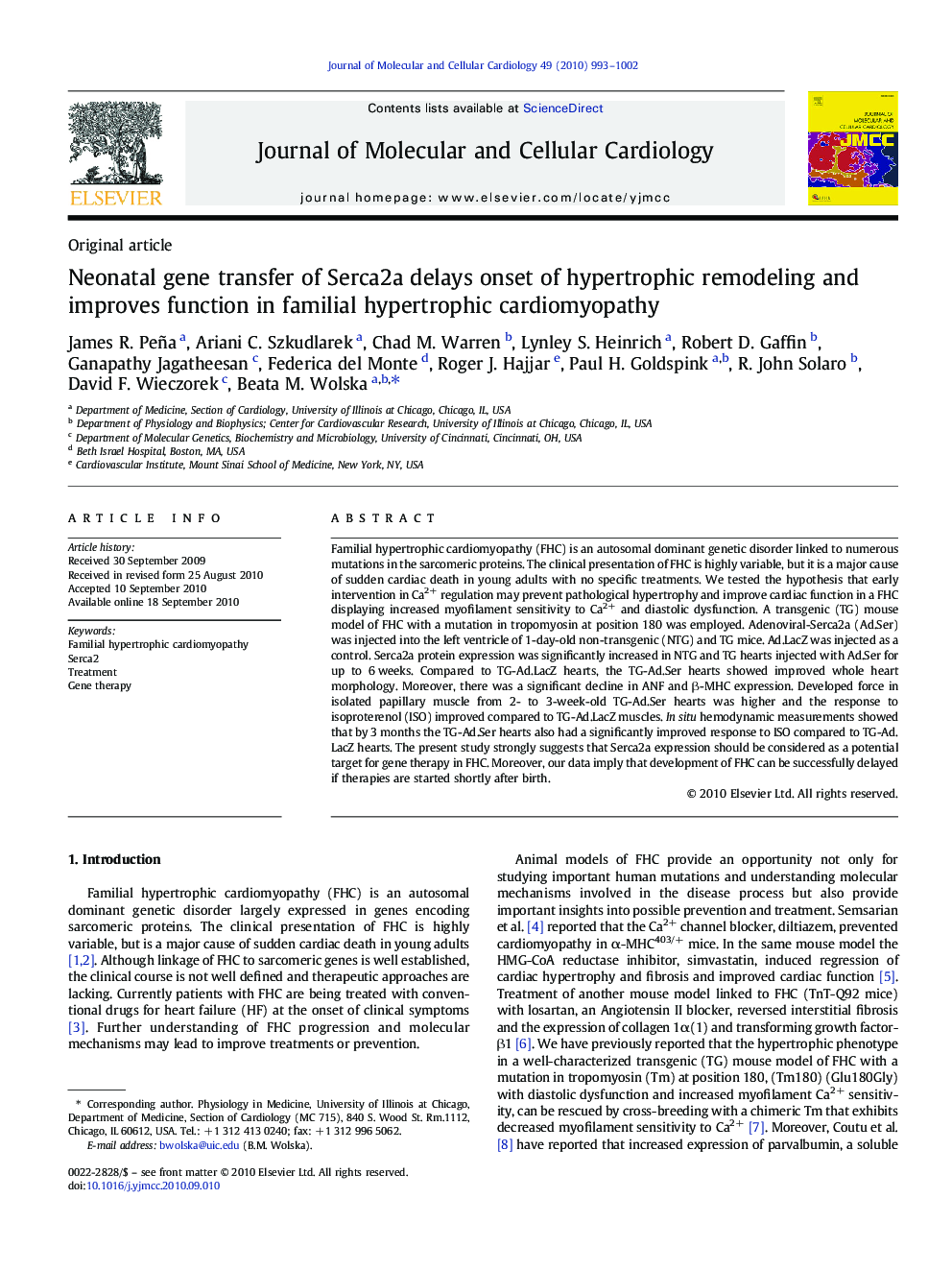| کد مقاله | کد نشریه | سال انتشار | مقاله انگلیسی | نسخه تمام متن |
|---|---|---|---|---|
| 2190908 | 1097831 | 2010 | 10 صفحه PDF | دانلود رایگان |

Familial hypertrophic cardiomyopathy (FHC) is an autosomal dominant genetic disorder linked to numerous mutations in the sarcomeric proteins. The clinical presentation of FHC is highly variable, but it is a major cause of sudden cardiac death in young adults with no specific treatments. We tested the hypothesis that early intervention in Ca2+ regulation may prevent pathological hypertrophy and improve cardiac function in a FHC displaying increased myofilament sensitivity to Ca2+ and diastolic dysfunction. A transgenic (TG) mouse model of FHC with a mutation in tropomyosin at position 180 was employed. Adenoviral-Serca2a (Ad.Ser) was injected into the left ventricle of 1-day-old non-transgenic (NTG) and TG mice. Ad.LacZ was injected as a control. Serca2a protein expression was significantly increased in NTG and TG hearts injected with Ad.Ser for up to 6 weeks. Compared to TG-Ad.LacZ hearts, the TG-Ad.Ser hearts showed improved whole heart morphology. Moreover, there was a significant decline in ANF and β-MHC expression. Developed force in isolated papillary muscle from 2- to 3-week-old TG-Ad.Ser hearts was higher and the response to isoproterenol (ISO) improved compared to TG-Ad.LacZ muscles. In situ hemodynamic measurements showed that by 3 months the TG-Ad.Ser hearts also had a significantly improved response to ISO compared to TG-Ad.LacZ hearts. The present study strongly suggests that Serca2a expression should be considered as a potential target for gene therapy in FHC. Moreover, our data imply that development of FHC can be successfully delayed if therapies are started shortly after birth.
Research Highlights
► Serca2a should be considered as a potential target for gene therapy not only in patients with late stages of HF, but also in patients with FHC.
► Therapies for FHC may be more successful if started shortly after birth.
Journal: Journal of Molecular and Cellular Cardiology - Volume 49, Issue 6, December 2010, Pages 993–1002